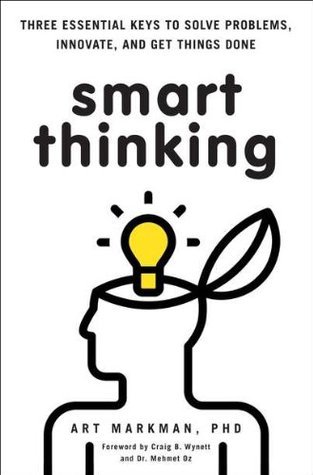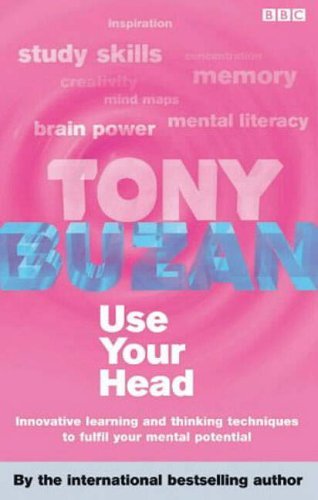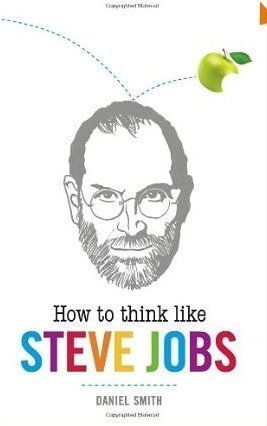
Smart Thinking: Three Essential Keys to Solve Problems, Innovate, and Get Things Done
Book Description
Unlock the hidden potential of your mind and transform chaos into clarity. In "Smart Thinking," Art Markman reveals three essential keys that empower readers to tackle problems, spark innovation, and propel projects forward with relentless efficiency. This guide distills complex cognitive research into actionable insights, illuminating the path to strategic thinking and creative breakthroughs. With each page, the excitement builds, offering practical tools to master the art of problem-solving like never before. Are you ready to unleash your cognitive superpowers and revolutionize the way you think?
Quick Book Summary
"Smart Thinking" by Art Markman provides a blueprint for enhancing cognitive abilities by understanding how the mind works and forming more effective thinking habits. The book distills decades of cognitive science into practical strategies that anyone can apply to solve everyday problems, foster innovation, and boost productivity. Markman identifies three essential keys: developing high-quality knowledge, deliberately using that knowledge, and fostering a supportive environment and habits that facilitate smart thinking. Through a combination of fascinating research and actionable advice, the book demonstrates how habits can reinforce positive thinking, how broadening and organizing knowledge aids creativity, and how to turn insights into consistent performance. By mastering these principles, readers can train their minds to approach challenges with clarity, unlock creative breakthroughs, and achieve greater success.
Summary of Key Ideas
Table of Contents
Forming Effective Thinking Habits
Art Markman’s book revolves around the concept that smarter thinking is not a mysterious talent but a skillset built through intentional practice. He emphasizes the importance of forming effective thinking habits—mental routines that streamline problem-solving and decision-making. Habits, according to Markman, are the unconscious drivers behind much of our daily reasoning, and training ourselves to build productive habits is the foundation of smart thinking. By making thinking processes automatic, individuals can save mental resources and act more efficiently, especially under pressure.
Building and Organizing Knowledge
A core element of smart thinking is acquiring and organizing high-quality knowledge. Markman explains that intelligence relies less on raw brainpower and more on the depth and relevance of what one knows. Effective learners not only collect information but organize it in meaningful ways, allowing them to draw connections and apply knowledge across contexts. This systematic approach to learning turns isolated facts into building blocks for creative solutions and enhances recall during critical moments.
Applying Knowledge Deliberately
Deliberately applying knowledge distinguishes routine thinkers from innovative problem-solvers. Markman argues that smart thinkers actively seek out opportunities to apply their learning, reflect on outcomes, and adjust strategies. By taking a hands-on approach to their own thinking, they reinforce what works and discard ineffective paths. This cycle of intentional application and reflection fuels personal and professional growth, making it possible to tackle increasingly complex issues with confidence.
Creating Supportive Environments and Systems
The environment plays a central role in determining how well one can think smartly. Markman discusses how external factors like social networks, workplace design, and even digital tools can either enable or obstruct smart thinking. He encourages readers to shape their surroundings to support thoughtful habits—by minimizing distractions, fostering collaboration, and making access to quality information easy. Supportive environments not only reinforce positive cognitive habits but also nurture sustained innovation.
Translating Insights into Innovation
Ultimately, the book connects individual mindset shifts to broader acts of innovation and effective action. Markman illustrates how the cumulative effects of building knowledge, honing habits, and designing environments translate everyday insights into breakthrough solutions. Success, he contends, is the result of systematically preparing the mind and surroundings to foster persistence, creativity, and disciplined execution. Readers emerge with a toolkit for sustaining smart thinking across both personal and professional challenges.
Download This Summary
Get a free PDF of this summary instantly — no email required.





